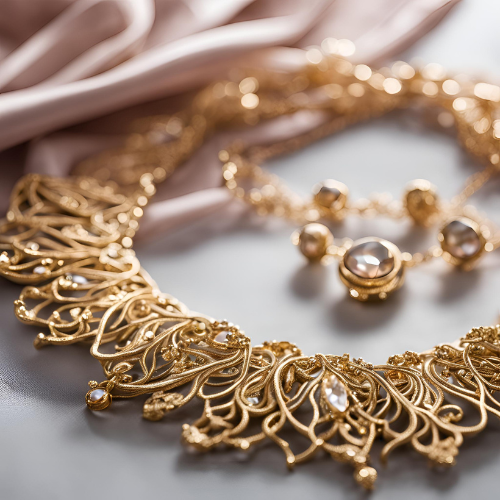Why Gold Will Never Lose Its Shine: The Timeless Truth You Need to Know
The Allure That Outlasts Empires
Imagine a metal so coveted that wars were fought over it, kingdoms rose and fell because of it, and even today, it sits at the heart of global finance. Gold isn’t just a shiny rock—it’s a symbol of power, security, and human ingenuity. But why does gold still matter in our age of cryptocurrencies and digital wallets? What makes it a "safe haven" when the economy crashes? And could it ever become worthless? Let’s dig into the glittering truth—and the gritty realities—of gold.
From Pharaohs to Fort Knox: Gold’s Historical Journey
Gold’s story begins over 5,000 years ago. Ancient Egyptians buried their pharaohs with gold masks, believing it symbolized eternal life. The Romans minted gold coins to pay armies, and Spanish conquistadors ravaged continents for it. Fast-forward to 1944: the Bretton Woods Agreement tied global currencies to the U.S. dollar, which was backed by gold. Though that system collapsed in 1971, gold never lost its prestige.
Why it matters today: Gold’s history isn’t just trivia—it explains why we still trust it. As economist Peter Bernstein once said, “Gold is the ultimate enemy of the central banker. It refuses to be ‘printed’ or manipulated.” Unlike paper money, gold’s supply grows slowly, making it immune to inflation.
Gold’s Modern Superpowers: What Can It Do for You?
1. The Ultimate Financial Safety Net
When stock markets crash (think 2008 or 2020), gold often surges. For example, during the 2008 crisis, gold prices jumped 25% while the S&P 500 dropped 38%. Why? Panicked investors flock to gold because it’s seen as a "store of value" that won’t vanish overnight.
Pro:
Inflation Hedge: When money loses value (like in the 1970s or 2022), gold often rises.
Diversification: Adds balance to portfolios heavy on stocks or bonds.
No Default Risk: Unlike bonds or banks, gold can’t go bankrupt.
Con:
No Passive Income: Gold doesn’t pay dividends or interest. As Warren Buffett quips, “Gold gets dug out of the ground, then we melt it down, dig another hole, bury it again, and pay people to stand around guarding it. It has no utility.”
Storage Costs: Safes, vaults, or ETFs eat into returns.
2. The Digital Age Paradox
Cryptocurrencies like Bitcoin are called "digital gold," but gold’s physicality gives it unique clout. You can’t hold a Bitcoin in your hand during a blackout or political crisis. Gold’s tangibility makes it a lifeline in disasters.
Pro:
Universal Acceptance: Every culture recognizes gold’s value.
Privacy: Physical gold transactions leave no digital trail.
Con:
Illiquidity: Selling a gold bar isn’t as easy as clicking “sell” on Robinhood.
Volatility: Short-term price swings can be brutal (e.g., -28% drop in 2013).
What the Experts Say: Quotes That Cut Through the Noise
Alan Greenspan (Ex-Fed Chair): “Gold is a way of protecting wealth against political and economic instability.”
Translation: When governments act recklessly, gold thrives.
John Maynard Keynes: Called gold a “barbarous relic” but admitted it’s a necessary anchor in chaotic times.
Irony Alert: Even skeptics acknowledge its psychological power.
Ray Dalio (Billionaire Investor): “If you don’t own gold, you don’t know history or economics.”
Takeaway: Ignore gold at your portfolio’s peril.
The Dirty Secrets Nobody Talks About
1. Environmental Costs
Gold mining devastates ecosystems. Producing one gold ring generates 20 tons of waste. Modern mines leak cyanide and mercury, poisoning water supplies.
2. The Manipulation Scandals
In 2019, JPMorgan admitted to manipulating gold prices for years. Even central banks suppress gold to prop up currencies.
3. The Generational Divide
Millennials prefer Bitcoin; boomers hoard gold. Who’s right? Time will tell, but gold’s track record spans millennia.
My Take: Gold Isn’t Perfect, But It’s Essential
I’ll be honest: I don’t worship gold. It’s not a magic bullet. But in a world where governments print trillions overnight, owning a little gold is like buying insurance for your savings. It won’t make you rich, but it could save you from going broke.
Final Verdict: Should You Buy Gold?
Yes if:
You want to hedge against inflation or crisis.
You’re diversifying a stock-heavy portfolio.
No if:
You seek quick profits or passive income.
You can’t stomach price swings.
Gold isn’t for everyone, but understanding it is. As the saying goes, “Gold is the money of kings, silver the money of gentlemen, and debt the money of slaves.” Choose wisely.


